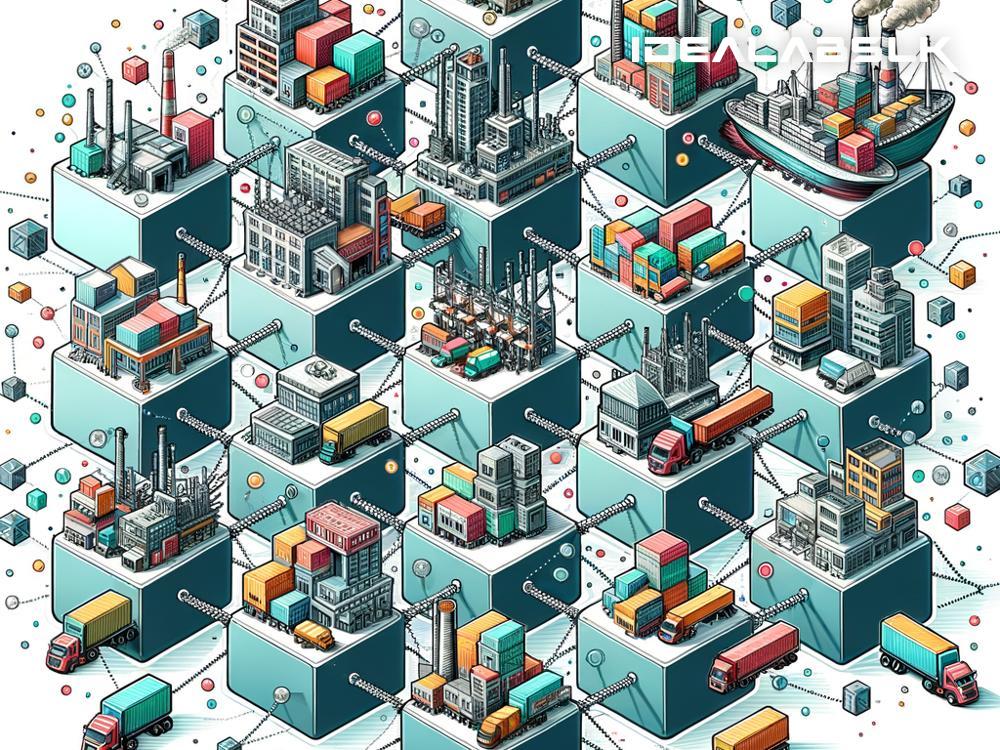Unraveling the Mystery: How Blockchain Powers Supply Chain Transparency
In a world that increasingly values sustainability and ethical practices, the journey of products from their origin to our hands is under more scrutiny than ever. Consumers and businesses alike want to know: where did this come from? Who made it? Was it produced responsibly? That's where the magic of blockchain comes in, revolutionizing the way we understand supply chain transparency. But what is blockchain, and how does it work in making supply chains more transparent? Let's dive in.
Blockchain: The Basics
Imagine blockchain as a digital ledger, but instead of being kept in one place, it's distributed across several computers, or nodes, around the world. Each entry in this ledger is called a block, and each block is connected to the ones before and after it – forming a chain, hence the name "blockchain." These entries can record anything: transactions, contracts, or product journey details.
One of blockchain's standout features is its security and immutability. Once something is recorded, it cannot be changed or deleted, ensuring a truthful and permanent record. This might seem simple, but its implications for supply chain transparency are enormous.
Illuminating the Supply Chain
Supply chains can be incredibly complex, weaving through countries and companies before a product reaches its end user. In traditional systems, this complexity clouds visibility, making it hard to verify claims about sustainability, ethical labor practices, or product authenticity. Enter blockchain.
-
Trust Through Transparency: With blockchain, every step a product takes, from raw material to finished good, can be recorded securely and immutably. This transparency helps in building trust as businesses and consumers can verify the history and authenticity of products without relying solely on trust.
-
End-to-End Visibility: Because blockchain records are decentralized and secure, it allows for end-to-end visibility in the supply chain. Everyone involved, including the end consumer, can trace the product's journey. This level of detail is unprecedented and incredibly valuable, especially for products where origin and handling matter, like food or pharmaceuticals.
-
Counterfeit Prevention: The secure nature of blockchain makes it an effective tool against counterfeits. Since each product can be tagged and its movement recorded on the blockchain, it becomes much harder for counterfeit products to infiltrate the supply chain undetected.
-
Streamlining Operations: Beyond transparency, blockchain can streamline supply chain operations. By automating contracts and payments through smart contracts (self-executing contracts with the terms written into code), businesses can reduce delays and eliminate disputes, ensuring smoother operations.
Real-World Examples
Several industries are already harnessing the power of blockchain for supply chain transparency:
-
Food Industry: Companies use blockchain to trace the journey of food products from farm to table, reassuring customers about the quality and safety of their food. For instance, a consumer can scan a QR code on a package of coffee and see the entire journey of those beans – where they were grown, when they were harvested, and how they reached the store.
-
Fashion Industry: In the fashion industry, blockchain is used to verify the authenticity of luxury goods and ensure ethical production practices. Consumers can check if the cotton in their T-shirt was sustainally grown and if the garment was produced in a factory adhering to labor laws.
-
Pharmaceuticals: Blockchain helps in combating counterfeit medicines by tracking their production, storage, and distribution. This not only ensures drug safety but also adheres to regulatory compliance.
The Road Ahead
While the adoption of blockchain in supply chain transparency is growing, it's not without challenges. Implementation costs, technological complexities, and the need for industry-wide standards are hurdles that need to be addressed. However, the potential benefits are too significant to ignore.
In an era where consumers demand more information about the products they purchase, blockchain stands out as a transformative technology fostering trust, accountability, and efficiency. As we move forward, its role in ensuring supply chain transparency is bound to grow, shaping the future of how products and their stories reach us.
So, the next time you pick up a product off the shelf, imagine the invisible yet indelible trail it has left on the blockchain, bringing great transparency into our hands. That's the power of blockchain simplifying, securing, and shining a light on the intricate supply chains that weave through our global economy. It's not just about technology; it's about trust, and blockchain is leading the way.

